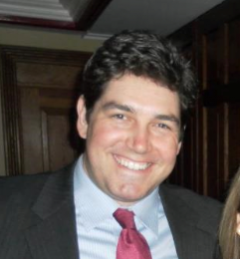 Ph.D. candidate Stuart MacKay has had an article published in iPolitics about Confederate statues and historical memory. Below is a short excerpt with the full article, “Those Confederate monuments are built on racist lies. Tear them down” available online.
Ph.D. candidate Stuart MacKay has had an article published in iPolitics about Confederate statues and historical memory. Below is a short excerpt with the full article, “Those Confederate monuments are built on racist lies. Tear them down” available online.
Despite Lincoln’s victory, Americans have always had a peculiar sort of amnesia when it comes to the history of the Civil War. This amnesia has been enabled by pro-slavery propaganda. After the war, neo-Confederates advanced a historical memory that viewed the war as a gallant “Lost Cause,” where heroic southerners fought for their rights against an oppressive central government.
Driven to reassert their racial superiority over blacks in a postwar South, white Southerners — enabled by white Northerners who prioritized national reconciliation over black civil rights — advanced a narrative of slavery that portrayed it as a benevolent, paternalistic institution. Soon after, Confederate statues began appearing throughout the South, becoming the most visible manifestation of this toxic ideology.
The killing of Heather D. Heyer by a white supremacist in Charlottesville, Virginia, forces us to confront this very ideology. Nominally, the rally on Saturday was organized to oppose a plan by local city officials to remove a statue of Robert E. Lee, the top military commander of the Confederacy, from Emancipation Park in Charlottesville.
The question of the legitimacy of Confederate memorials and monuments throughout the United States has aroused controversy and mobilized far-right white supremacist groups to rally in defence of these monuments. It has stirred up anger in cities like New Orleans and Richmond, as local officials begin to make plans to remove other Confederate monuments. In Durham, North Carolina, protesters toppled a statue of a Confederate soldier.
An odd idea percolates throughout much of the coverage of these events — the idea that, by removing these statues, we will somehow lose a sense of history. “How will we know our history,” comes the cry, “if we erase that history?”
But history doesn’t exist as some sort of essential, submerged truth which — once scraped of the barnacles of partiality and bias — will somehow reveal its unblemished hull to us. Historical memory is always a contest over who gets to own it. And for years, the United States has allowed the propaganda of the Confederacy to win that contest.